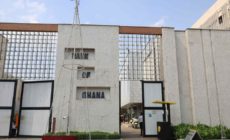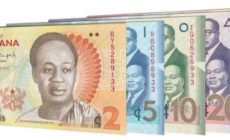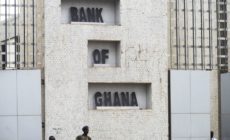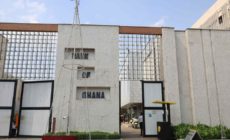Bank of Ghana writes off GH¢3.1bn in loans because of new accounting rule
- Posted on
- Comment
 The Bank of Ghana (BoG) wrote off three times more of its loans in 2018 than it did in 2017.
The Bank of Ghana (BoG) wrote off three times more of its loans in 2018 than it did in 2017.
The action, according to the bank’s 2018 annual report, was largely due to a change in the method used to report the bank’s financial statements.
Last year, when BoG started reporting its financial statements in accordance with the International Financial Reporting Standards Nine (IFRS 9), the bank’s bad loans, technically called impairment losses, rose from 13 per cent of the gross loans and advances in 2017 to 39 per cent.
The increased impairment led to the central bank reporting a net loss of GH¢793.09 million in 2018.
The loss for the year under review was almost half of that of GH¢1.64 billion posted in 2017.
An analysis of the bank’s 2018 report showed that but for the impairment, which was GH¢3.1 billion, BoG could have posted a net profit in excess of GH¢1 billion in that fiscal year.
The impairment was on a gross loan book of GH¢7.88 billion, which was advanced to financial institutions and other quasi-government institutions, according to the annual report.
Robust standards
Issued by the International Accounting Standards Board (IASB) in July 2014, the IFRS 9 is a set of financial reporting standards that hinge on the classification and measurement of financial instruments, impairment of financial assets and hedging of accounting.
It took effect globally on January 1, 2018, forcing all relevant institutions to adopt it in the reporting of their financial standards.
A banking consultant with more than three decades of experience, Dr Richmond Atuahene, said in an interview that the increased impairment by BoG showed the impact that the IFRS 9 would have on the finances of institutions.
“The impairment of BoG’s loans is not so much about loans given to institutions that were unable to pay or that have gone bad but it is more of the change in the reporting standards,” he said.
“This new system is more robust; it requires that you recognise the loan as you book it,” he said, noting that, such a standard had negative implications on the profits and capitals of reporting institutions.
Implications on shareholders
The impact of the IFRS 9 on the profit and loss account of BoG gives a glimpse of what the new reporting standards holds in store for banks and their shareholders.
Two Chief Finance Officer (CFOs) of two universal banks in the country told the Graphic Business on condition of anonymity that the increased impairment requirements under the IFRS 9 had implications on the pricing of loans, the profit and the capital of banks.
“Generally, it means that you will be impairing more of your loans under strenuous circumstances.
“The major assumption under that is you do not wait for an adverse event to happen before you can impair it,” one of the CFOs said.
It explained that while the old regime of financial reporting required banks to have “objective evidence” that the customer was having difficulty repaying the loan before impairment, IFRS 9 “says you do not need to wait, you have to make an assumption and provision for it.”
The other CFO said the increased requirement for more impairment charge meant that the shareholders’ funds of banks would be reduced.
The shareholders’ funds, according to BoG rules, comprise paid up capital and reserve funds.
The reserve account holds funds from the profit and loss account and the income surplus of the bank.
“So, when my provision goes up, my paid up capital will be the same but the amount that I will transfer to the reserve fund will reduce.
“The difference that will go into retained earnings, which I can use to pay dividend will reduce,” the CFO said.
It said banks that were religious with BoG rules on provisional requirement would not register significant impairment losses, following the adoption of the IFRS 9 on January 1, last year.
Beneficiaries of BoG loans
Meanwhile, BoG’s 2018 annual report showed that of the GH¢7.88 billion that was in the central bank’s loan book, GH¢5.38 billion was advanced to financial institutions and the remaining GH¢2.51 billion was loaned to what the bank referred to as other quasi-governmental institutions.
A source at BoG explained that the financial institutions referred to banks while the other quasi-governmental institutions referred to the Ghana Cocoa Board (COCOBOD).
-Graphic










 (Selorm) |
(Selorm) |  (Nana Kwesi)
(Nana Kwesi)